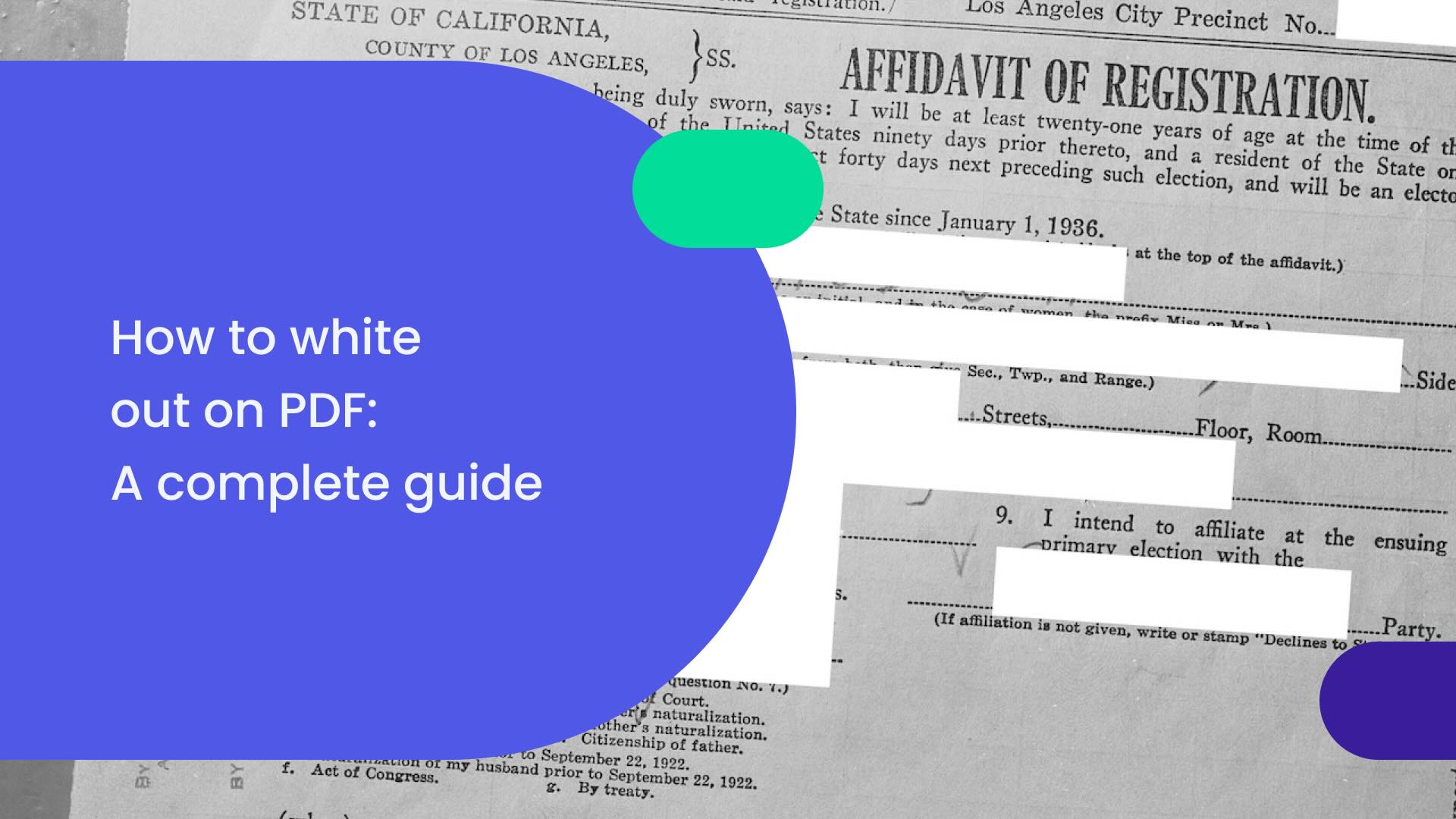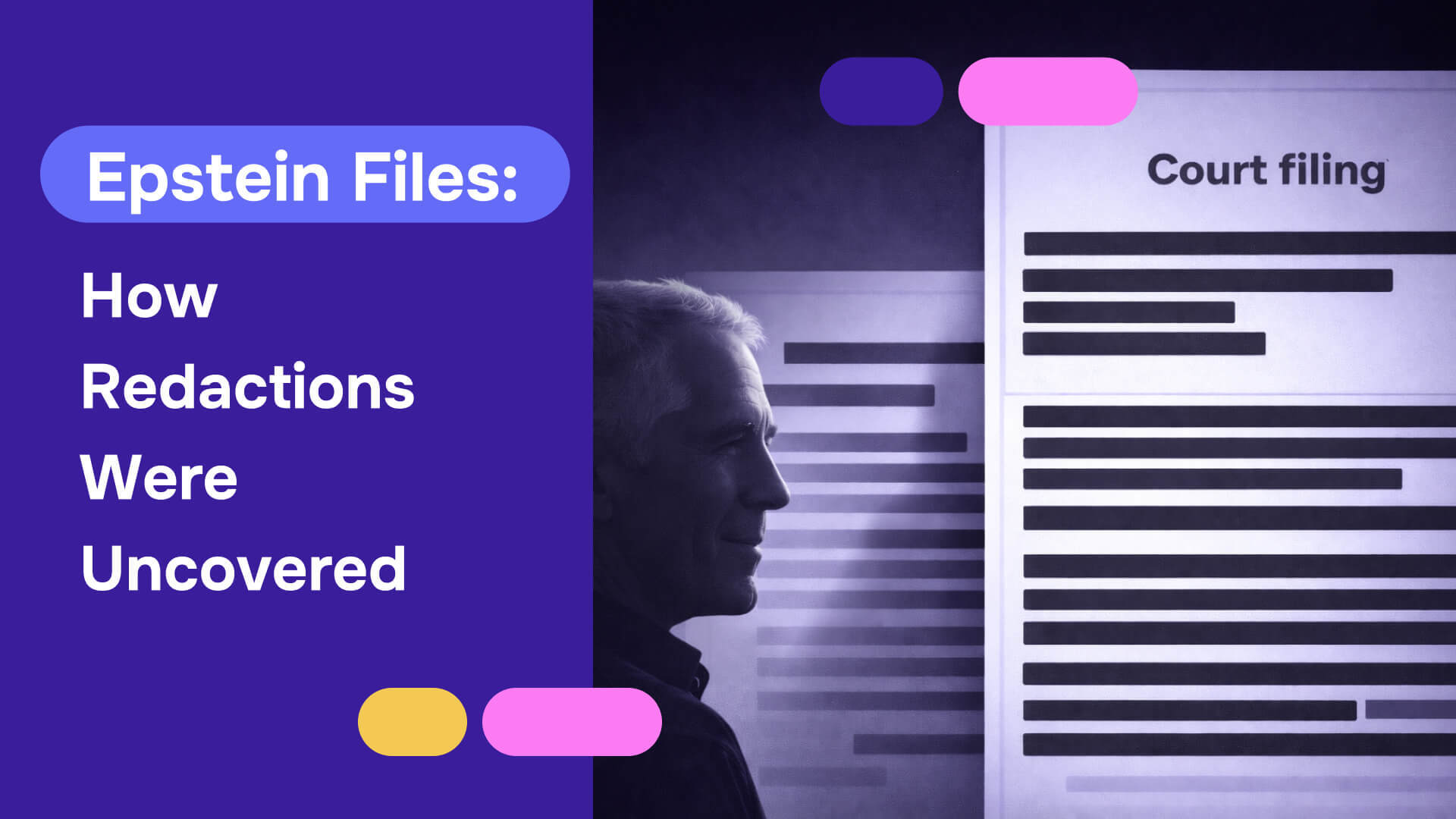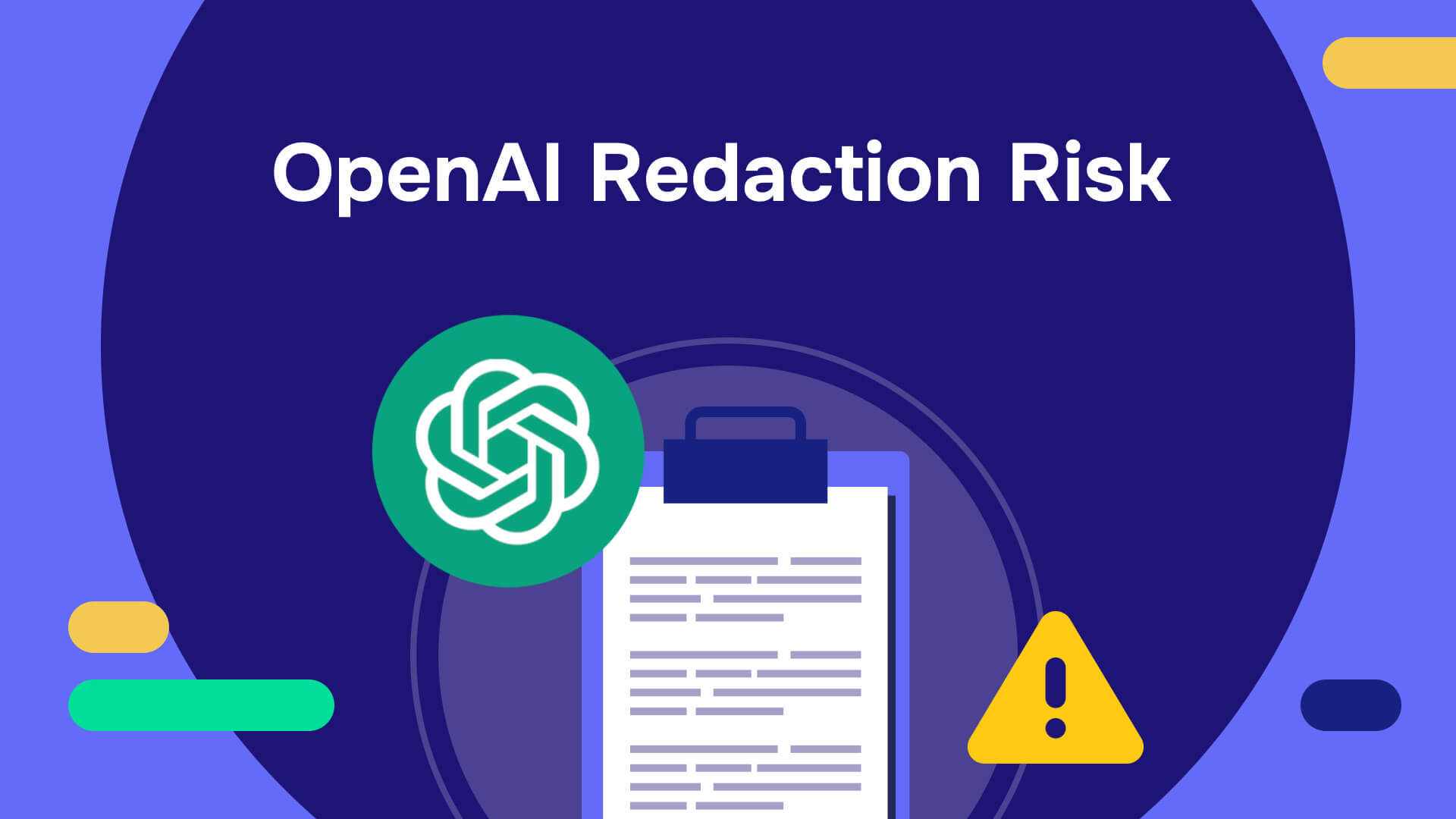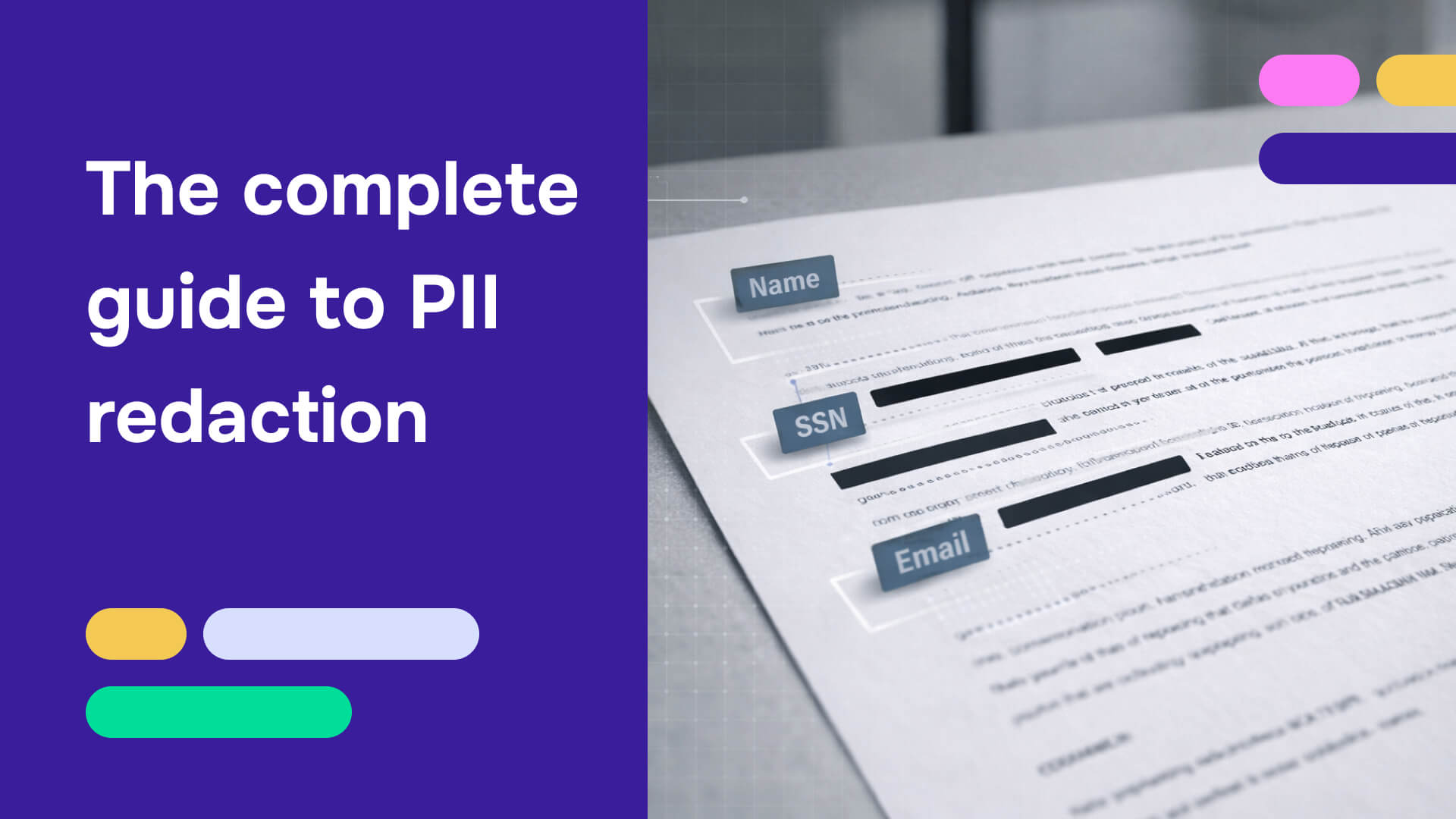Learning how to white out on PDF requires understanding two fundamentally different approaches: basic methods that only hide information visually, and professional techniques that permanently remove sensitive data. Standard PDF white out using rectangles or annotation tools leaves original text fully accessible through copy-paste, search functions, or basic manipulation.
With data breaches costing nearly $5 million on average and privacy regulations imposing fines up to €20 million, it’s more critical than ever to understand how to white out PDF content securely. Organizations handling confidential documents must go beyond basic white overlay tools and adopt professional redaction methods that ensure true data protection and regulatory compliance.
How to white out text in PDF: Basic methods
Learning how to white out text in PDF using standard methods involves digital annotation tools that place white rectangles, shapes, or overlays over sensitive information. This approach mimics traditional correction fluid by visually covering unwanted text with white space that blends into the document background.
How to white out in Adobe: Step-by-step process
Understanding how to white out on PDF with Adobe requires accessing the comment and annotation tools within Adobe Acrobat Reader:
Step 1: Open your PDF document in Adobe Acrobat Reader and locate the "Comment" tools in the right-hand panel:
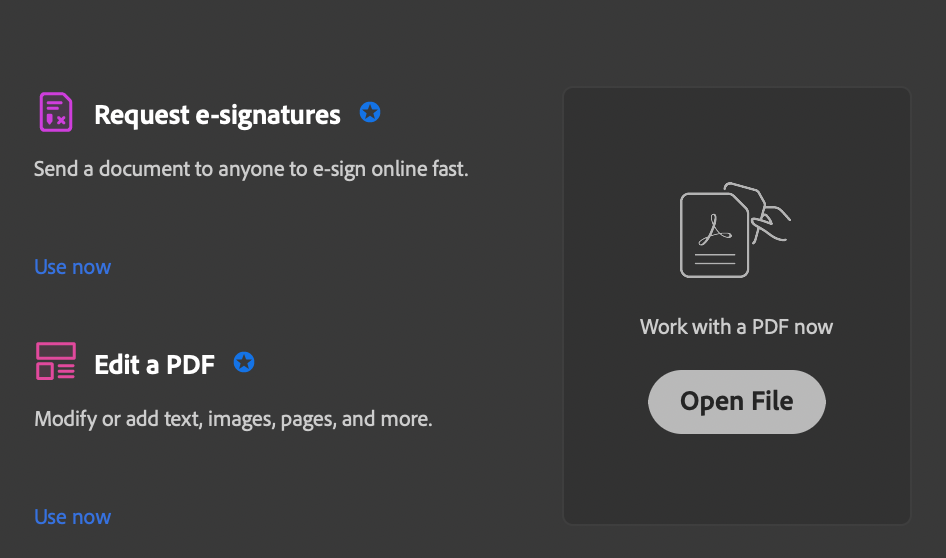
Step 2: Select the "Add Rectangle" tool from the Drawing Markups section of the comment toolbar:
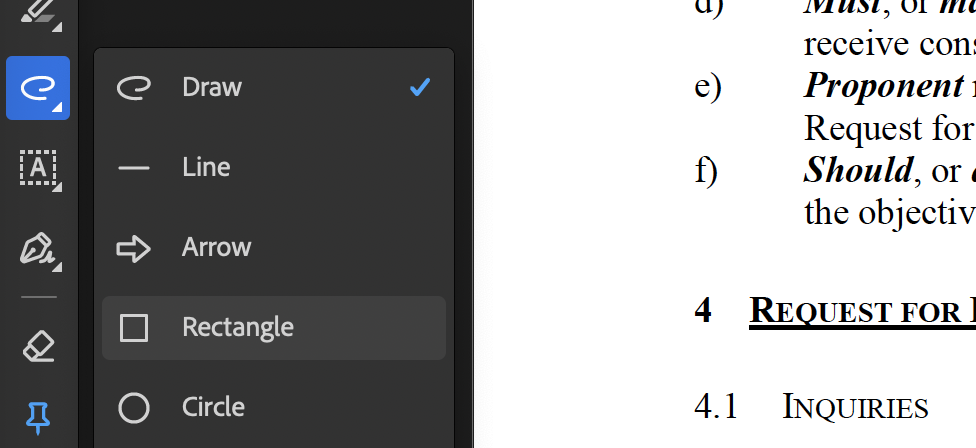
Step 3: Click and drag over the text you want to cover, creating a rectangle that obscures the sensitive content:

Step 4: Modify the rectangle properties by right-clicking and selecting "Properties," then change both fill color and border color to white with 100% opacity:
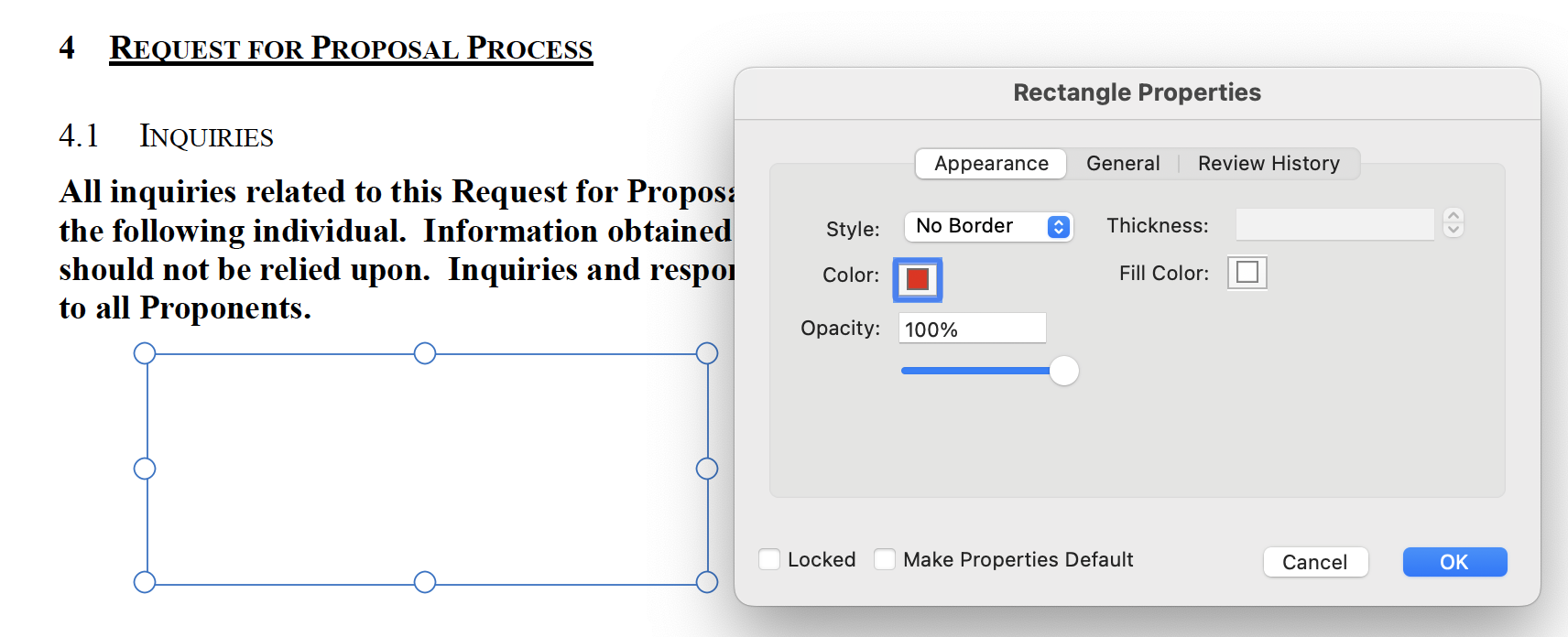
Step 5: Save the document with the overlay applied to the content:
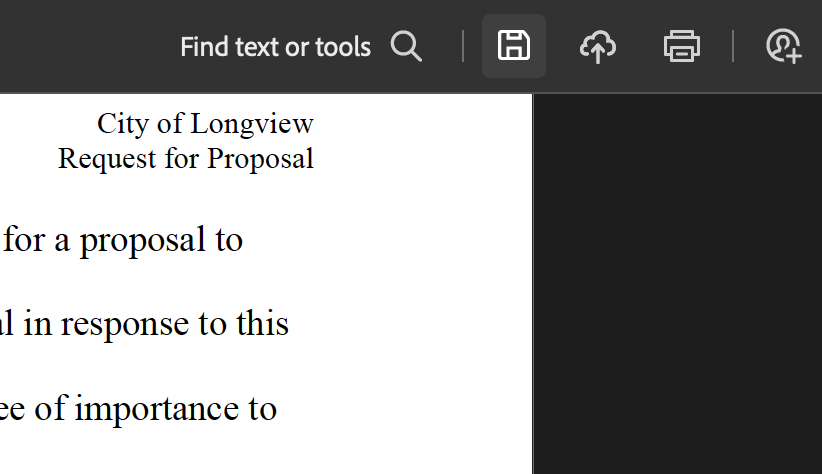
Alternative white out methods
Beyond Adobe's tools, several alternative approaches exist for white out text in PDF files:
- Microsoft Office applications enable users to place white text boxes or shapes over content before exporting to PDF format.
- Online PDF editors provide drawing tools that allow users to cover text through web-based interfaces.
- PDF annotation software offers concealment capabilities through shape and markup tools designed for document editing.
Critical security flaw: why basic methods fail
Standard annotation techniques create dangerous false security by leaving original data completely intact within the file structure. When you use basic white out methods, the information remains accessible through multiple attack vectors:
⚠️ Text selection reveals hidden content even when visually obscured by white rectangles.
⚠️ Search functions locate concealed information that appears hidden after applying overlay methods.
⚠️ Copy-paste operations extract underlying text despite visual editing attempts.
⚠️ PDF layer manipulation allows removal of annotation layers, exposing the original content you attempted to conceal.
How to white out PDF securely using professional redaction methods
Secure approaches for protecting sensitive information require professional redaction tools that permanently remove data rather than merely concealing it. Unlike basic PDF white out techniques, professional redaction modifies the PDF file structure to eliminate targeted content completely, ensuring no recovery methods can access the removed information.

Professional tools for secure document protection
Adobe Acrobat Pro's redaction features provide the proper way to protect content through "Mark for Redaction" and "Apply Redactions" functions that permanently delete specified information. Note that these redaction capabilities require the paid Pro version - the free Adobe Reader only offers basic annotation tools that don't actually remove data.
Specialized redaction software offers advanced capabilities including automatic detection of sensitive data patterns, batch processing, and comprehensive metadata removal.
Enterprise redaction platforms integrate AI-powered detection with audit trail generation, providing the most secure approach for regulated industries handling confidential documents.
Comprehensive data removal for secure editing
Professional methods address multiple data layers within documents:
- Permanent content elimination removes text, images, and graphical elements completely when using proper redaction tools.
- Metadata sanitization eliminates author information, creation timestamps, and revision histories that basic annotation methods cannot address.
- Hidden data extraction removes transparent objects and off-page content invisible to standard techniques.
- Search index cleaning ensures redacted content cannot be located through document search functions after processing.
Readl also: How to markup & annotate a PDF
Risks of basic PDF white out methods vs secure redaction
Basic annotation methods and proper redaction may look similar, but only one actually removes your data. Annotation tools simply cover information with visual overlays—the original text remains fully accessible. Professional redaction permanently deletes sensitive content from the file structure. Here is head to head com
Real-world failures from improper document protection
Document security failures continue escalating across industries, with over 3,200 publicly reported data compromises affecting 353 million individuals in 2023—a 78% increase over 2022. Many of these breaches stem from organizations not understanding how to white out text in PDF documents properly, particularly the dangerous assumption that visually hiding information equals secure data removal. Here are some notable examples:
Apple vs. Samsung patent case (2011): Court-filed documents used inadequate protection methods that exposed Apple's confidential market analysis, customer loyalty research, and licensing agreement details through simple copy-paste operations. The court's attempt to conceal sensitive information failed because they didn't use proper redaction tools, allowing competitors to access supposedly protected business strategies.
AstraZeneca COVID-19 vaccine contract (2021): Government-published contracts contained improperly applied concealment techniques that left pharmaceutical pricing and supply chain information accessible through basic PDF manipulation. The failure to properly protect confidential information demonstrated how inadequate methods can compromise sensitive negotiations despite official attempts at confidentiality.
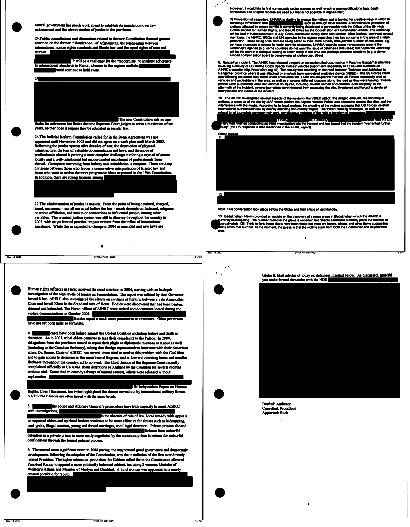
Compliance failures from incorrect document protection
In 2025, eight U.S states implemented eight new privacy laws, increasing the complexity of data management. These laws include Maryland's Online Data Protection Act (MODPA) and New Jersey's Data Privacy Act (NJDPA), data breaches cost nearly $5 million on average in 2024, with GDPR violations resulting in hefty fines.
Modern privacy regulations specifically address data protection requirements that basic annotation methods cannot satisfy:
GDPR Article 32 mandates "appropriate technical and organizational measures" for data security, requiring more than visual concealment approaches that leave data recoverable.
HIPAA security requirements demand permanent removal of protected health information, not overlay techniques that preserve underlying medical data.
State privacy laws including California's CCPA require demonstrable data deletion capabilities that standard annotation techniques do not provide.
Organizations relying on basic concealment methods face potential fines up to €20 million under GDPR and significant litigation exposure under various privacy regulations.
Five reasons to upgrade from basic PDF white out to professional methods

1. Military-grade protection for document security
Professional redaction tools implement security standards that meet government and military industry requirements, ensuring sensitive information receives appropriate protection levels beyond basic annotation methods.
2. Permanent data elimination
Advanced redaction techniques modify file structures to remove data completely, preventing sophisticated recovery attempts that can bypass standard overlay methods.
3. Comprehensive metadata removal for secure editing
Professional tools eliminate hidden document properties, creation histories, and embedded information that basic concealment approaches leave fully exposed to data extraction.
4. AI-powered detection for accurate processing
Modern redaction platforms use artificial intelligence to identify sensitive data patterns including Social Security numbers, credit card details, and personal identifiers across complex document structures.
5. Regulatory audit trails for compliant workflows
Professional redaction solutions generate detailed documentation of removal activities, providing compliance evidence that regulatory agencies require during investigations or audits.
Best practices for secure PDF document protection
- Implement professional redaction workflows using specialized tools designed for permanent data removal rather than annotation-based concealment methods.
- Verify redaction effectiveness by testing processed documents through copy-paste operations, search functions, and metadata inspection to confirm complete data elimination.
- Train staff on security distinctions between visual hiding and permanent removal to prevent inadvertent use of inadequate protection methods.
- Update software regularly to benefit from improved security features and emerging threat protection capabilities in professional redaction tools.
- Establish verification protocols requiring multiple reviewers to confirm redaction completeness before distributing documents containing sensitive information.
How to redact PDFs with Redactable: step-by-step guide
Professional redaction doesn't require expensive enterprise software or technical expertise. Redactable's AI-powered platform automatically detects sensitive information across 30+ categories while providing permanent data removal and comprehensive audit trails. Here's how to properly redact your documents in minutes:
Step 1: Create a new project:
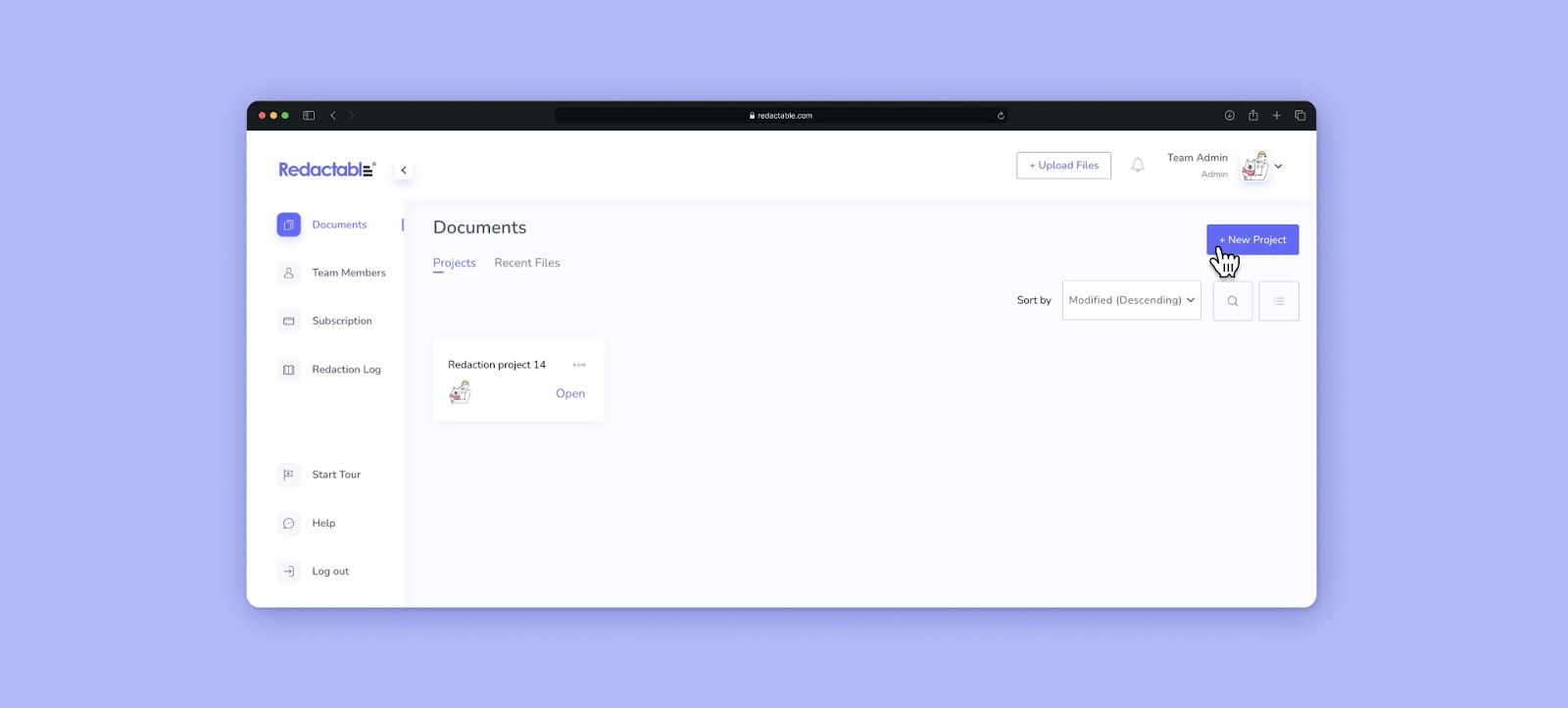
Step 2: Upload files:
.jpeg)
Step 3: Select files from your computer, or for any popular cloud storage:
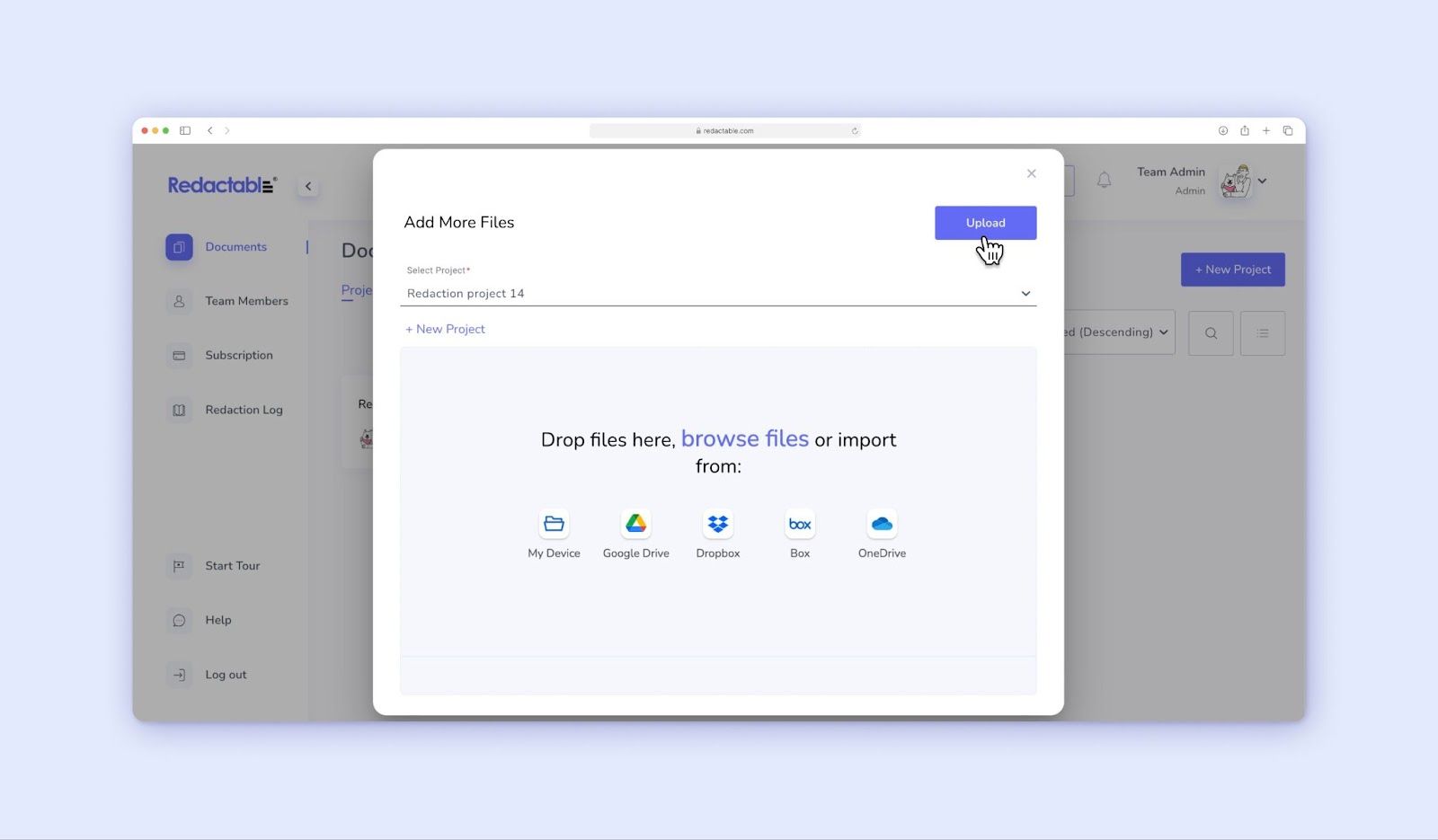
Step 4: Select redaction method:
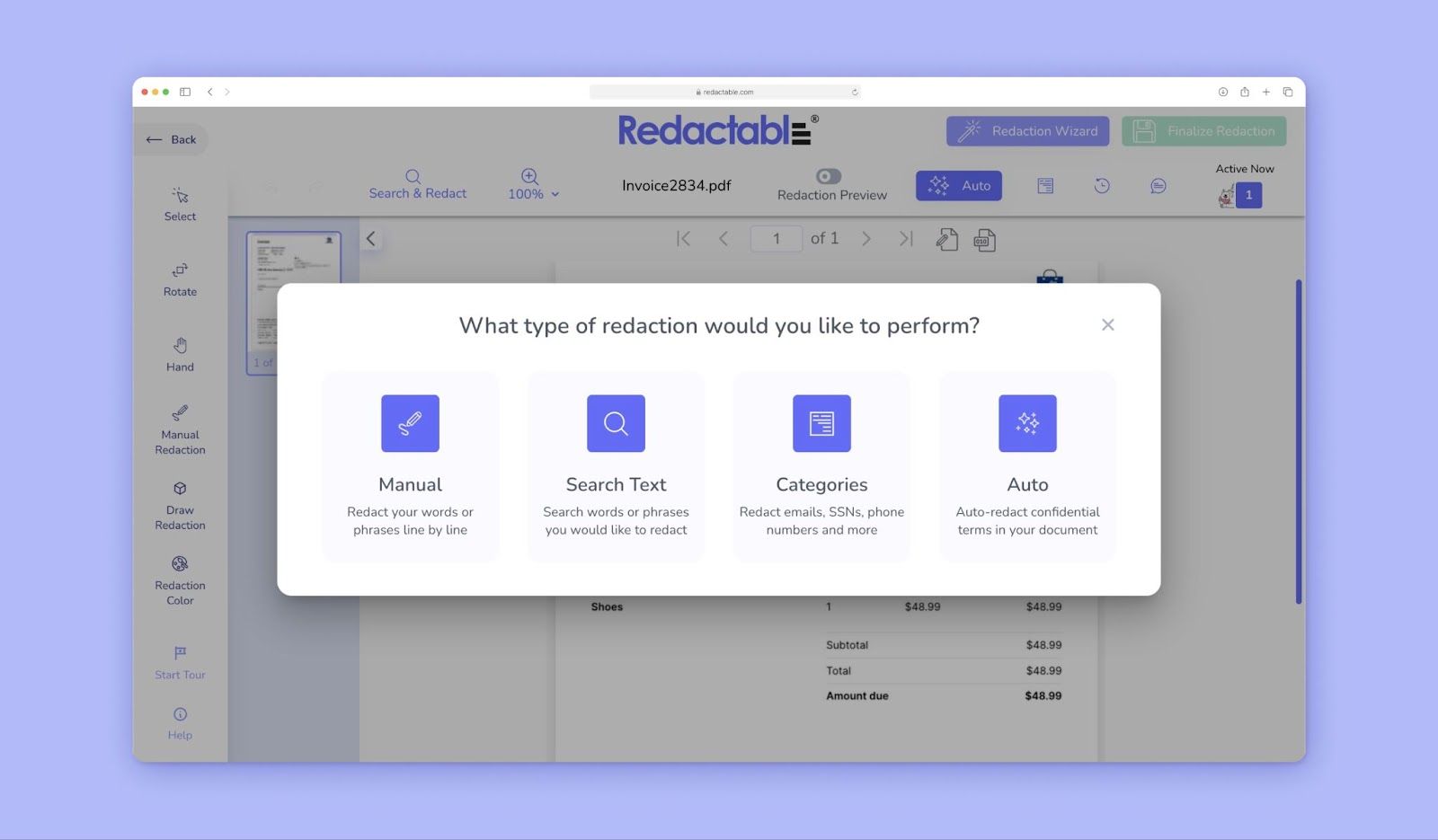
Step 5: Choose which data fields you want to redact:
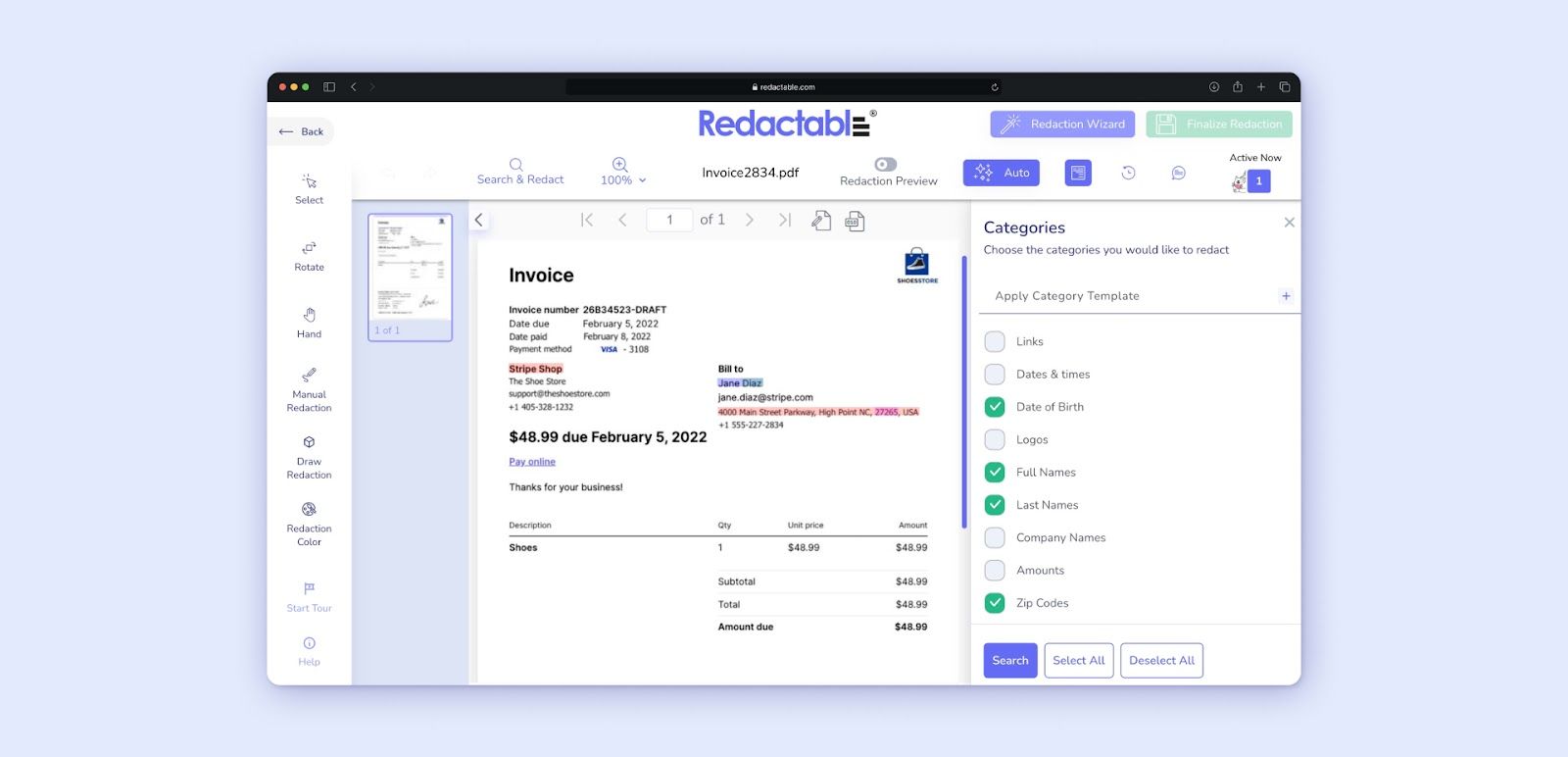
Step 6: Click on “Redact X items”:
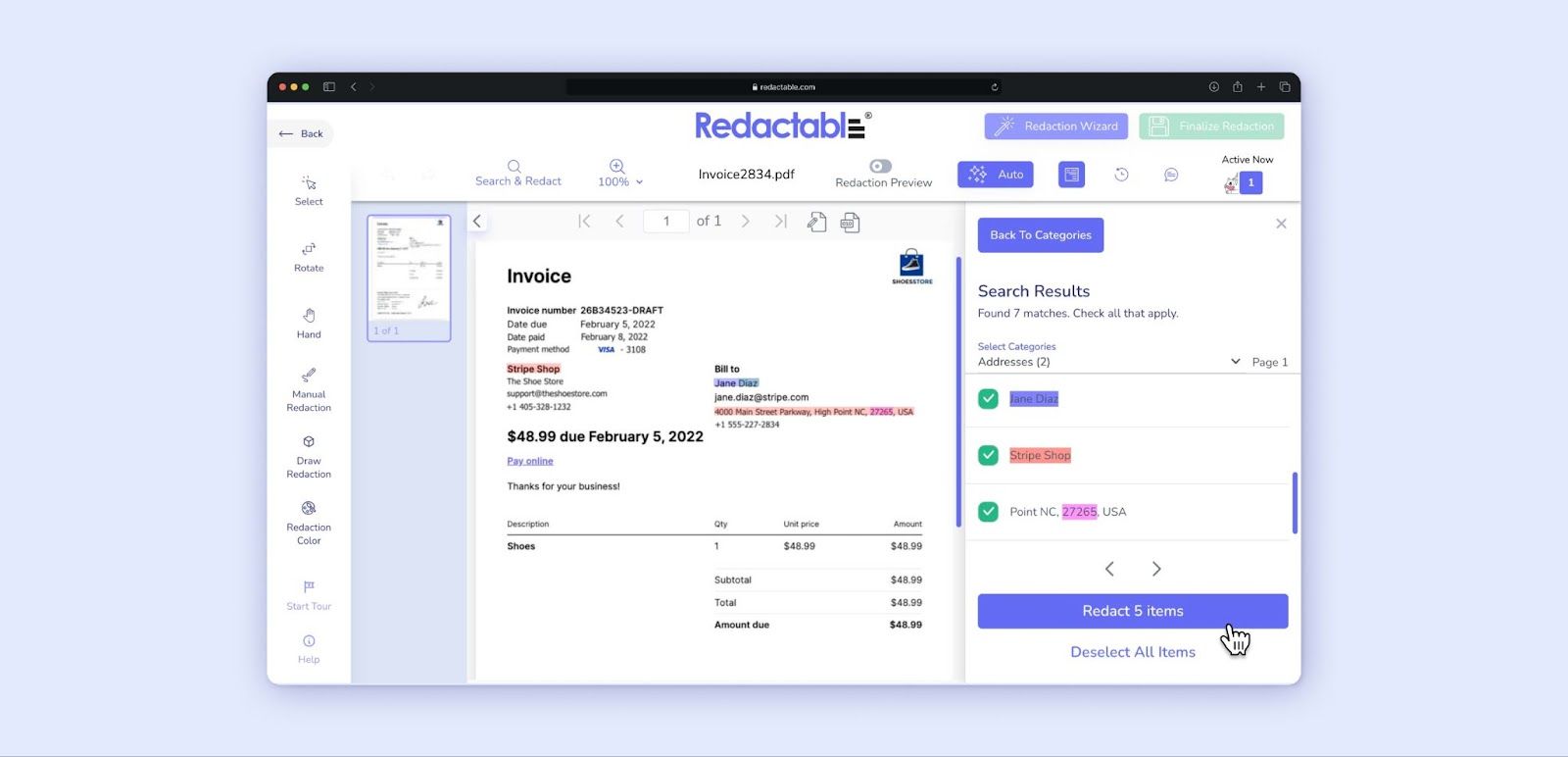
Step 7: Preview all redacted data prior to completing the project:
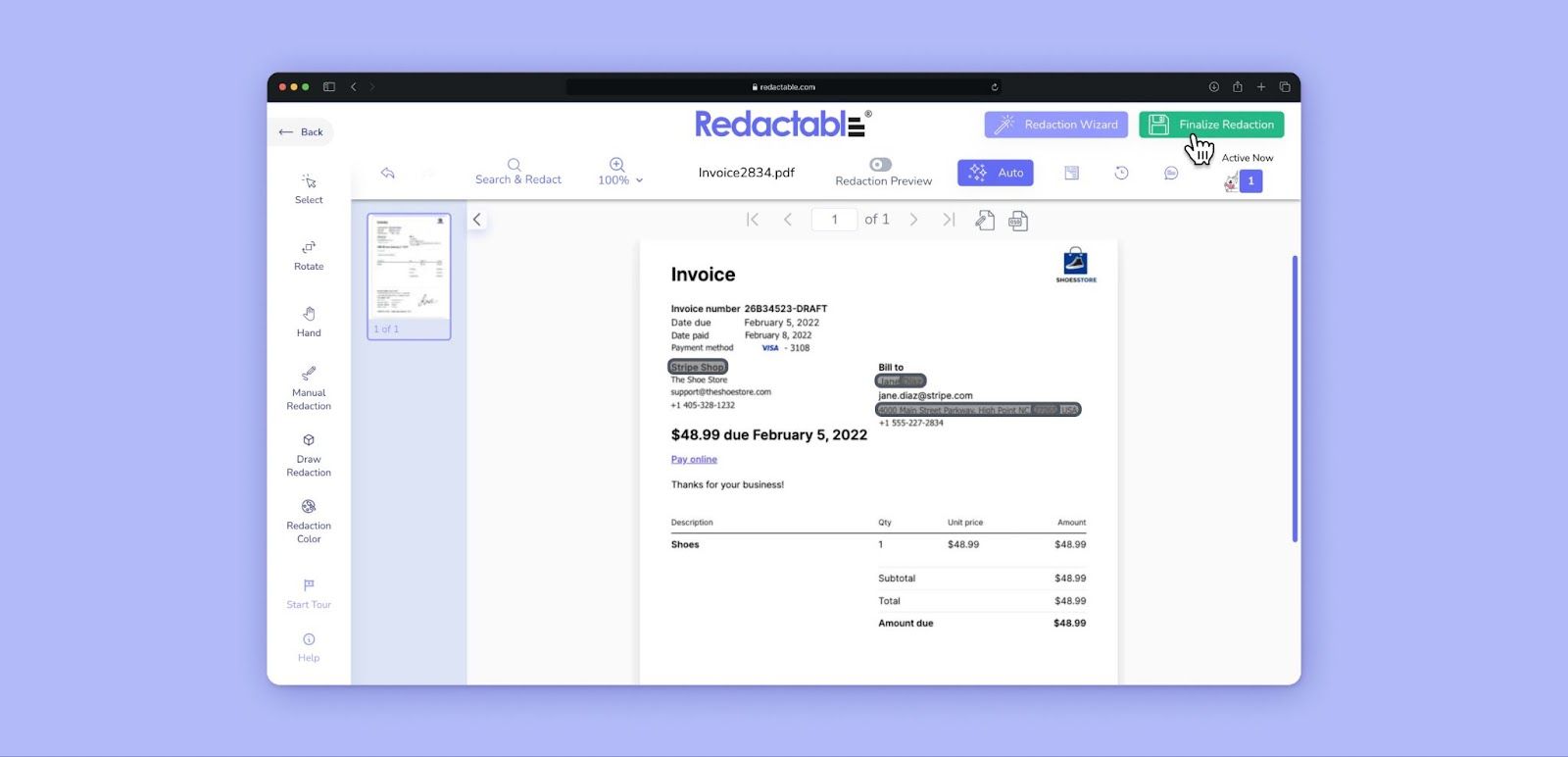
Step 8: Finalize your project and download the completed certificate.
Stop risking data breaches with visual PDF white out methods
Basic white out methods create serious security risks. When you cover sensitive information with rectangles or overlays, the original data stays in your document—accessible to anyone with basic PDF skills.
Data breaches cost organizations an average of $5 million, and privacy regulation fines can reach €20 million. These costs far exceed any savings from using free annotation tools instead of proper redaction software.
Redactable offers 98% time savings compared to manual redaction while permanently removing sensitive data, metadata, and hidden information. The platform automatically detects Social Security numbers, credit card details, addresses, and other sensitive patterns across your documents.
Professional redaction protects your organization from costly breaches, regulatory violations, and accidental disclosure of confidential information. The audit trails and certificates generated by proper redaction tools demonstrate compliance during regulatory reviews.
Book a demo with our team to see how Redactable permanently removes sensitive data from your documents. Start your free trial today to protect your organization from the risks of basic white out methods.

